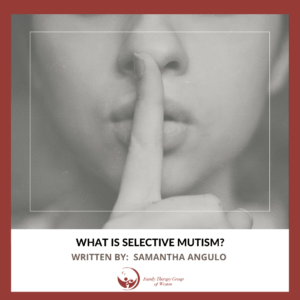Offering Telehealth Services & Online Counseling Sessions
Counseling
Do you feel that you are struggling to cope with everyday life?
Do you find yourself paralyzed by the difficult moments of everyday life? Are you struggling with so much sadness that it's hard to remember happier times? Do everyday tasks seem to be all of the sudden overwhelming and just too much to handle?
Have you begun to question your ability to make decisions about your relationship, your kids, your job, because you are afraid to make the wrong decision? Perhaps you are going through a divorce or painful breakup and having a really hard time putting it all back together again….
Are you struggling with your parenting abilities; maybe things seem to be getting out of hand? Are you ready for a change?
Are you tired of struggling in your relationship?
Do you feel that your relationship is "stuck" or that you have fallen into the trap of monotony? Are you constantly in turmoil with your partner?
Do you spend sleepless nights wishing that things could be better?
Do you sometimes wonder if your partner really cares about you?
Do you feel that your needs for closeness are not being met in your current relationship?
Are you beginning to wonder if the only solution is to separate or divorce?
You wish there was a better way, in which you could feel connected and loved by your partner again…
Are you tired of constantly arguing with your teenager?
Have you noticed a recent change in your teenager's personality, friends and school performance?
Are you seeing worrisome behavior that has you wondering if there is more that we are not seeing?
Does your teen seem to have difficulty managing anxiety related to school, friends and relationships?
Have you recently learned that your adolescent is using illicit drugs?

Monica Arroyo, LCSW, Owner & Clinical Director

Adriana W. Bal, LMHC, Clinician

Sarah Rohan, LMHC, Clinician
Ten ways to improve your relationship
Ten ways to divorce proof your relationship In an era where the divorce rates keep rising, couples need to work harder than ever to keep their relationships alive and vibrant. Using simple techniques in a consistent basis can greatly improve the connection between two spouses and decrease relationship problems. Meet and do things together. Schedule…
Read MoreWhat is your love language?
What is your love language? A sure way to build intimacy in your relationship. We are all familiar with the concept of romantic love and how it affects our relationships. The desire for romantic love in our relationships is something that is part of who we are as human beings. One of the most difficult…
Read MoreHow to avoid communication fireworks
How to avoid Communication Fireworks Good communication is central to being happy in any relationship. It is through good communication patterns that our partners’ feel appreciated, respected, valued and loved. However, for many couples good communication is hard to achieve. Partners tend to get lost in power struggles, differences in opinion and unresolved issues. This…
Read More- « Previous
- 1
- …
- 35
- 36
- 37
Tips in Supporting Your Student-Athlete
By: Jennifer Gutierrez, Registered Marriage & Family Therapist Intern Encourage and Teach Time Management Skills Navigating the demands of school can already be daunting for many students. Involvement in an extra-curricular activity, such as involvement in sports may increase the demands of your child. Coupled with physical fatigue and mental fatigue, finding the…
Read MoreBoundaries in Relationships
Written by: Nadinna Guerrero Boundaries is a term used frequently today; however, I am not sure everyone knows what it means. Boundaries are another core element in relationships that go hand in hand with our needs. Boundaries are the limits that we have set with others in our relationships. These limits are based on what we feel…
Read MoreWhat is Selective Mutism?
Written by: Samantha Angulo SM or Selective mutism is a mental health disorder characterized by a consistent failure to speak in social situations, especially situations in which someone might be expected to speak. This difficulty has to be present for at least one month, and most commonly develops in children before the age of…
Read More












